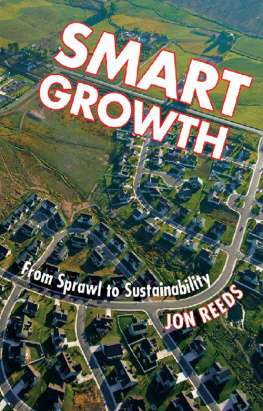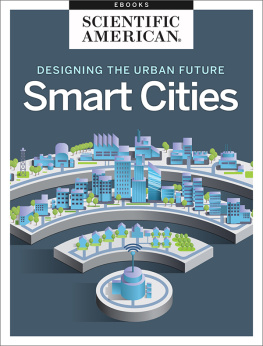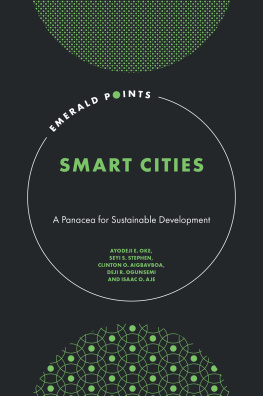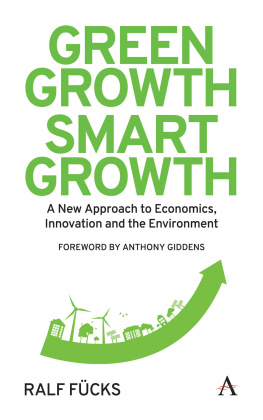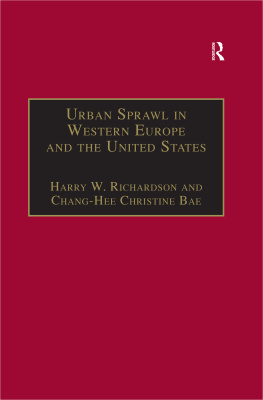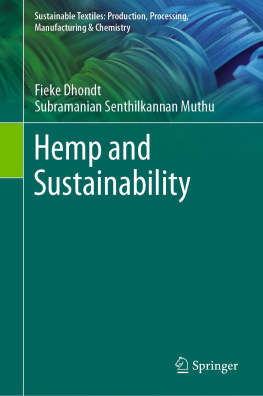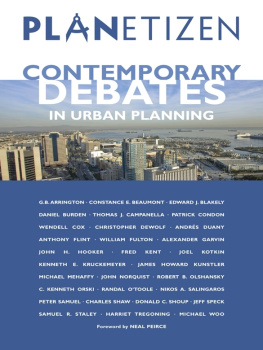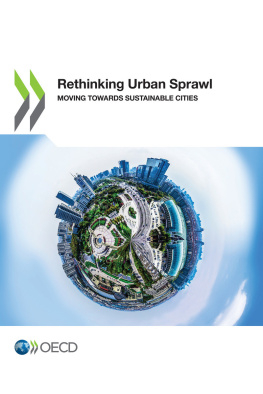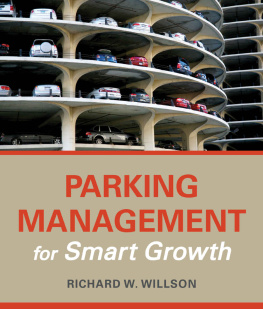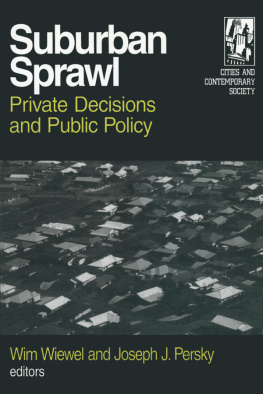Reeds - Smart growth: from sprawl to sustainability
Here you can read online Reeds - Smart growth: from sprawl to sustainability full text of the book (entire story) in english for free. Download pdf and epub, get meaning, cover and reviews about this ebook. City: Great Britain, year: 2011, publisher: UIT Cambridge Ltd.;Green Books, genre: Politics. Description of the work, (preface) as well as reviews are available. Best literature library LitArk.com created for fans of good reading and offers a wide selection of genres:
Romance novel
Science fiction
Adventure
Detective
Science
History
Home and family
Prose
Art
Politics
Computer
Non-fiction
Religion
Business
Children
Humor
Choose a favorite category and find really read worthwhile books. Enjoy immersion in the world of imagination, feel the emotions of the characters or learn something new for yourself, make an fascinating discovery.
Smart growth: from sprawl to sustainability: summary, description and annotation
We offer to read an annotation, description, summary or preface (depends on what the author of the book "Smart growth: from sprawl to sustainability" wrote himself). If you haven't found the necessary information about the book — write in the comments, we will try to find it.
Shows how urban sprawl is unsustainable in an age of climate change and peak oil, and challenges the UK to develop a Smart Growth approach to improve the quality of life in our overcrowded island.
Reeds: author's other books
Who wrote Smart growth: from sprawl to sustainability? Find out the surname, the name of the author of the book and a list of all author's works by series.
Smart growth: from sprawl to sustainability — read online for free the complete book (whole text) full work
Below is the text of the book, divided by pages. System saving the place of the last page read, allows you to conveniently read the book "Smart growth: from sprawl to sustainability" online for free, without having to search again every time where you left off. Put a bookmark, and you can go to the page where you finished reading at any time.
Font size:
Interval:
Bookmark:

Foxhole, Dartington,
Totnes, Devon TQ9 6EB
Cover design by Jim Banting
PDF edition ISBN 978 0 85784 020 2
I would like to thank all those many individuals and organisations who have helped with the writing of this book, especially those involved with the Smart Growth UK Steering Group.
My particular thanks for their encouragement, support, inspiration and practical assistance are due to Kaid Benfield, Keith Buchan, Elizabeth Cox, Allan Dare, Chris Gent, Kate Gordon, Jim Harkins, Fiona Howie, Bridget Leach, Brian Lomas, Gail Mayhew, Paul Miner, Marina Pacheco, Henry Oliver, Paul Squires, John Whitelegg, Rebecca Willis, Glynn Wilton and, of course, to everyone at Green Books.
I have had a great deal of wise advice and input from a range of organisations and individuals, both those involved with the Steering Group and others, but while this book reflects much of their advice and wisdom, I would stress that the views and conclusions contained in it, and any mistakes, are mine and mine alone.
Finally I would like to thank Kathy, for putting up with me while I was writing it and even when I was cursing an empty screen and not writing it.
with the mess we made.
It hardly needs pointing out that at this moment we are in a very serious mess, so serious that even the dullest witted people find it difficult to remain unaware of it.
George Orwell, The Road to Wigan Pier
These are challenging times for environmentalists. While the gloomy prognostications of the last 40 years are starting to come true and governments are, at long last, paying at least lip-service to the problems, opposition is mounting too, and some long-standing beliefs are proving, in all senses of the word, unsustainable.
Take urban sprawl, for instance. Fought by conservationists since the nineteenth century, we in the UK have nevertheless spent the last 100 years pursuing it relentlessly, spurred on by a fuzzy nostalgia for our ancestors rural past, by a desire to live in the countryside the sprawl destroys, by a widely held belief that low-density garden city or garden suburb living is good for us, and by a retreat from community into individualism. Meanwhile, across the Atlantic in the country of hypersprawl, robust principles for turning back the tide have been developed.
Or take car dependency, fought by environmentalists since the 1960s. We have nevertheless spent the last 100 years pursuing this too, spurred on by an illusory freedom of the open road, by the self-inflicted destruction of our public transport, by the demands of low-density living and by the same retreat from community into individualism. Curiously, one of the places pursuing the transit-oriented development philosophy long practised in some European countries and effectively trashed here is, once again, the United States the land of 18-lane freeways and heroic individualism. One shouldnt knock individualism, of course, but we have come to practise it at the expense of the community, and its blind pursuit has left us with some strangely contradictory beliefs about the environment.
The US is certainly not the first country most people in the UK seeking answers to the problems of urban sprawl or car dependency would look to for inspiration. Havent we had the worlds finest planning system for more than 60 years? Havent we recently elected the greenest government ever? Isnt our right to drive anyway seriously curtailed by congestion, by speed limits, by narrow roads, by speed cameras? Surely theres nothing the Americans can teach us? But, as we shall see, there is.
The Conservatives so entitled their manifesto for the general election in May 2010, but the election was a strange affair, overshadowed by a two-year financial nightmare. Few other issues really made it on to the political radar and, while there was a lot of hot air about global warming, there was little debate on environmental and social issues such as urban regeneration or even New Labours long-neglected urban renaissance. Car dependency and urban sprawl hardly registered with politicians determined not to upset the voters or their newspapers with such hostages to fortune.
Labours reticence was understandable with John Prescott managing domestic policy it had spent three years pursuing an urban renaissance, brown-field-first policy and an emphasis on transit; it then spent ten more under Gordon Brown dismantling them. But, almost uniquely among the major parties, it did mention urban regeneration and reiterated its long-standing (and long-exceeded) target of building 60 per cent of new homes in England on brownfield sites. The Conservatives promised councils and local people the sort of knit your own planning system foreshadowed in a paper called Open Source Planning in February 2010. They promised to replace detailed national planning guidance with a simple statement of national policy and to scrap regional strategies on the grounds that their destructive top-down house-building targets had exacerbated urban sprawl. But the reality was that sprawl would, instead, be promoted by allowing local authorities money if they allowed new development and leaving them hopelessly impoverished if they didnt. All three main parties promised protection for the green belt (in a country which actually has lots of green belts) and there were promises to improve the protected area system, while the Greens went further and promised landscape-scale conservation.
Policies to tackle our great car economy offered little more grounds for optimism. There was a great deal of talk about high-speed rail links that we probably cant afford and, while Labour was sticking to its doomed plans to expand Heathrow and other airports, the other parties wanted these scrapped, although there was vague talk of pursuing alternatives elsewhere. There was vague talk too about electric cars but little about urban public transport, apart from Labour having the audacity to promise tram systems in major cities, after spending six years derailing such schemes. Both Labour and the Conservatives were almost silent over whether they intended to go on spending billions on building roads, although the Liberal Democrats did at least promise to reopen railway lines and divert money from the roads budget to rail investment perhaps the only radical transport policy pursued by the major parties, but one that never made it into the coalition agreement. The Green Party also proposed to reallocate the road-building budget to public transport. Virtually alone among the political parties, it did voice some urban transit policy too, with a proposal to plan for mixed-use developments where shops, housing and businesses are closely located and connected by pavements and cycleways and to invest in light rail.
One brownfield issue did become an election issue, however, and it demonstrated how far debate needs to go in the UK if we are to start really taking across-the-board sustainability seriously. The issue was the product of a couple of years of largely manufactured outrage among the opposition parties about a subject that began life as back-garden development and metamorphosed into the catchier garden grabbing. According to this theory, the brownfield-first and urban-densification policies pursued since the late 1990s had been encouraging developers to knock down beautiful suburban villas and replace them with flats (destroying most of their gardens) or even just to build flats in the gardens around them.
Font size:
Interval:
Bookmark:
Similar books «Smart growth: from sprawl to sustainability»
Look at similar books to Smart growth: from sprawl to sustainability. We have selected literature similar in name and meaning in the hope of providing readers with more options to find new, interesting, not yet read works.
Discussion, reviews of the book Smart growth: from sprawl to sustainability and just readers' own opinions. Leave your comments, write what you think about the work, its meaning or the main characters. Specify what exactly you liked and what you didn't like, and why you think so.

